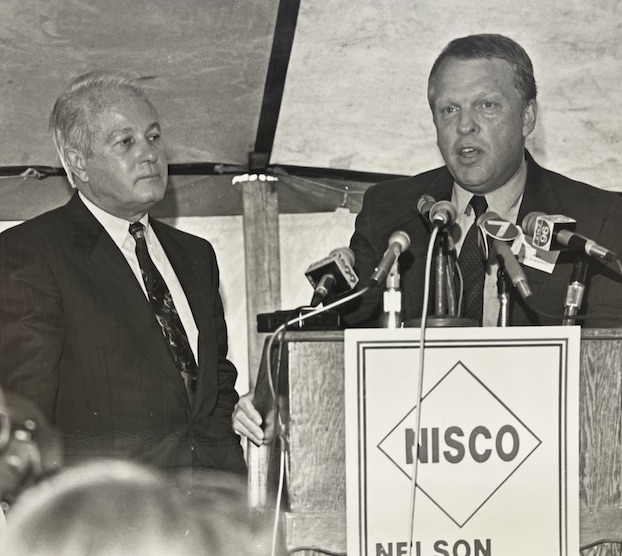Locals recall JFK’s 1959 visit to LC
Published 7:00 pm Tuesday, February 18, 2020
Recalling John F. Kennedy’s 1959 visit to Lake Charles and dinner at the Pioneer Club, Theresa Boudreaux said she was struck by how he remembered her name when autographing her menu.
“I was introduced to him once, and there were over 200 people at least,” she said. “I was so blessed to have met him.”
Boudreaux talked about Kennedy’s visit during Monday’s panel discussion at Historic City Hall. Kennedy and his wife, Jacqueline, visited Lake Charles on Oct. 16, 1959, and dined at the Pioneer Club, then located on the 10th floor of City Hall.
Trending
Then a Massachusetts senator, Kennedy’s visit happened before he announced his candidacy for president. Boudreaux said the mood at the dinner was upbeat.
“You could tell that everybody there was willing to vote for him,” she said. “There was no doubt about that.”
“I was there, and most of them were drunk,” Justice Jack Watson said jokingly about the crowd’s mood. Watson, a retired Louisiana Supreme Court Justice, was on the host committee that helped organize Kennedy’s visit.
Watson said he was tasked with picking up an American flag to hang at the dinner. He said he walked over to Muller’s Department Store to buy one.
“Sure enough, they had all the American flags you wanted,” Watson said. “To this day, I don’t remember what I paid for it or if somebody else paid for it.”
Jane Alcock Rouyer said her mother, Ann H. Rouyer, and her father, James Rouyer, attended the dinner. James also sat on the host committee.
Trending
Rouyer said Ann was Jacqueline’s escort during the event. The women, including Jacqueline, would meet in the women’s restroom, then referred to as the “powder room,” she said.
“I don’t know how long they took,” Rouyer said. “They were probably in there for a while because Mother was a talker.”
Annette Tritico was only 3 months old when her father, Joe, and mother, Anita, attended the dinner. Joe was part of the host committee.
“I’m sure my mom was a little anxious leaving me at home,” Tritico said. “But she would not have missed it for anything in the world.”
Anita described Jacqueline as being “dressed immaculately,” Tritico said.
“Her clothes, her etiquette, her manners … just conversation with her was very lovely,” she said.
Chief David Sickey with the Coushatta Tribe spoke of President Kennedy’s impact on Native Americans, including his pledge to end the termination policy. Sickey said the policy treated tribes as “normal citizens, with no special rights of any kind.”
“(Kennedy) set in motion the era of self-determination for Native Americans that we now live under,” Sickey said. “He had the courage to stand up for the most impoverished, the most silent minority groups here in America at the time.”
Edriena Alexander, director of the Impact Agency girl’s program, said Kennedy took action at a time of civil unrest, which was instrumental in securing civil rights for African Americans.
The exhibit, “American Visionary: The Life and Times of JFK,” is on display at Historic City Hall, 1001 Ryan St., through March 28.
Donna Price





